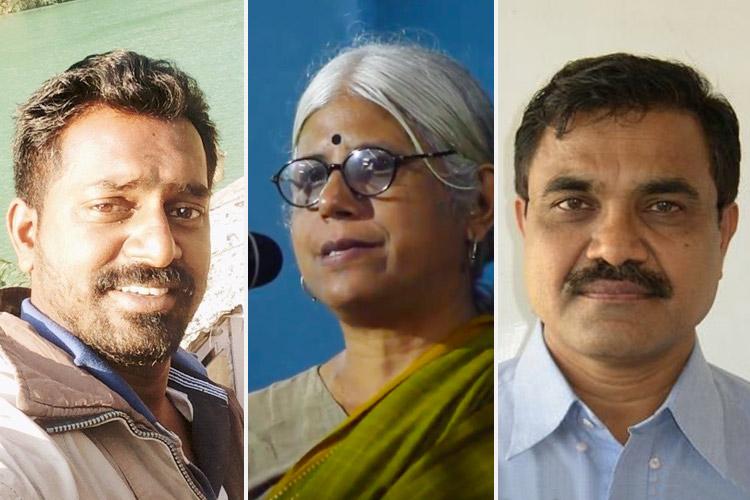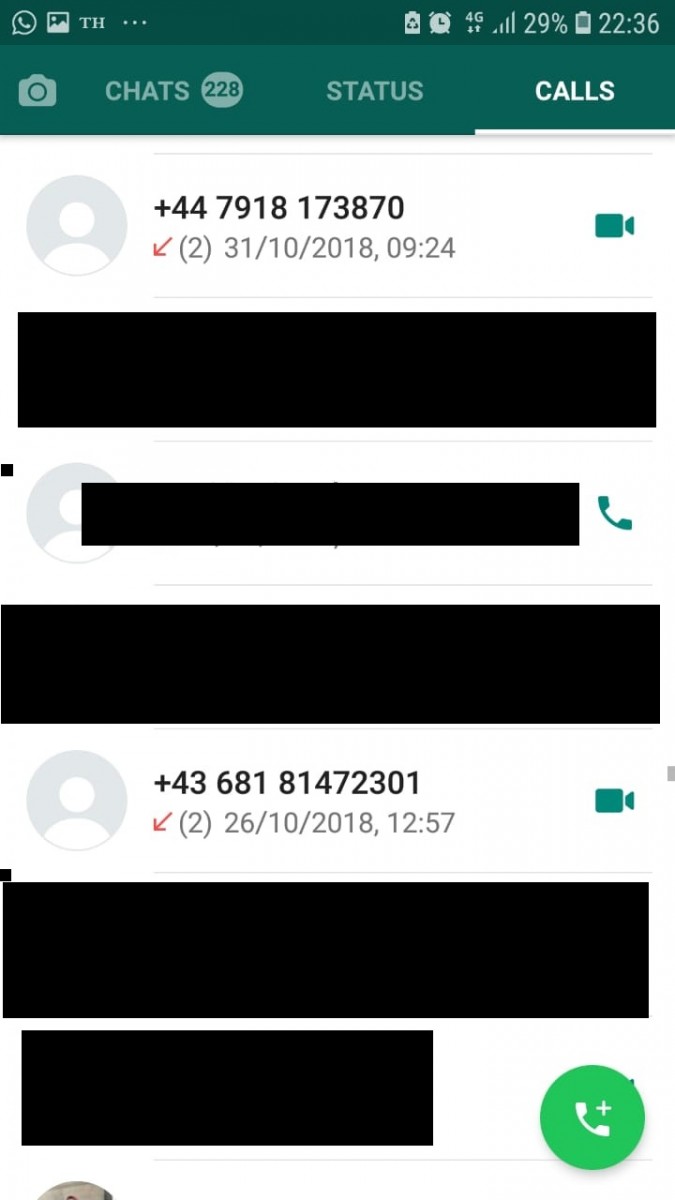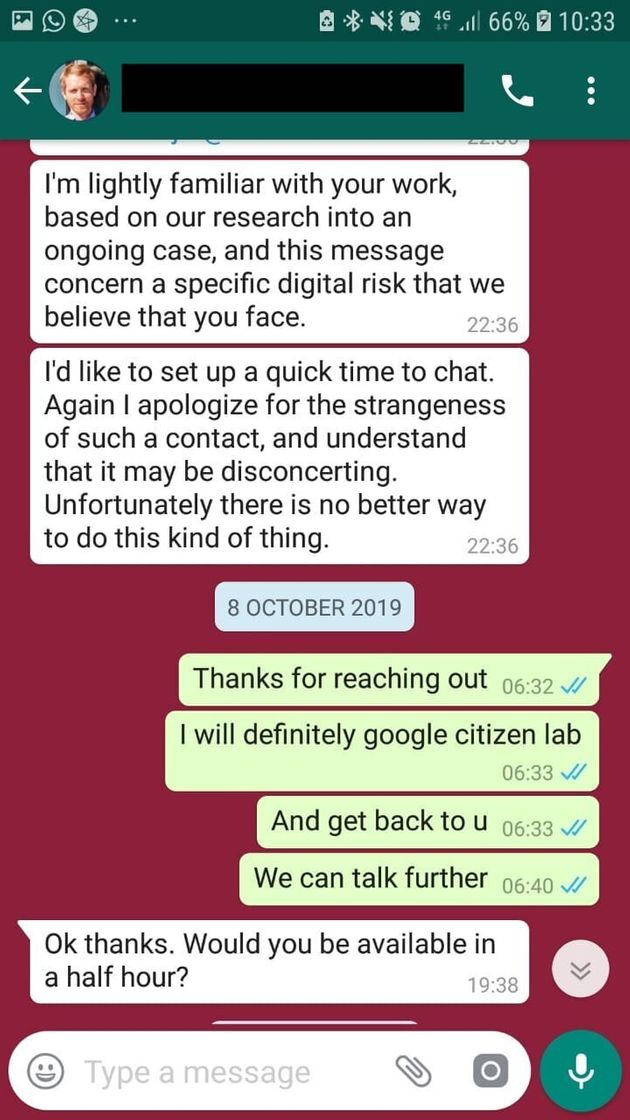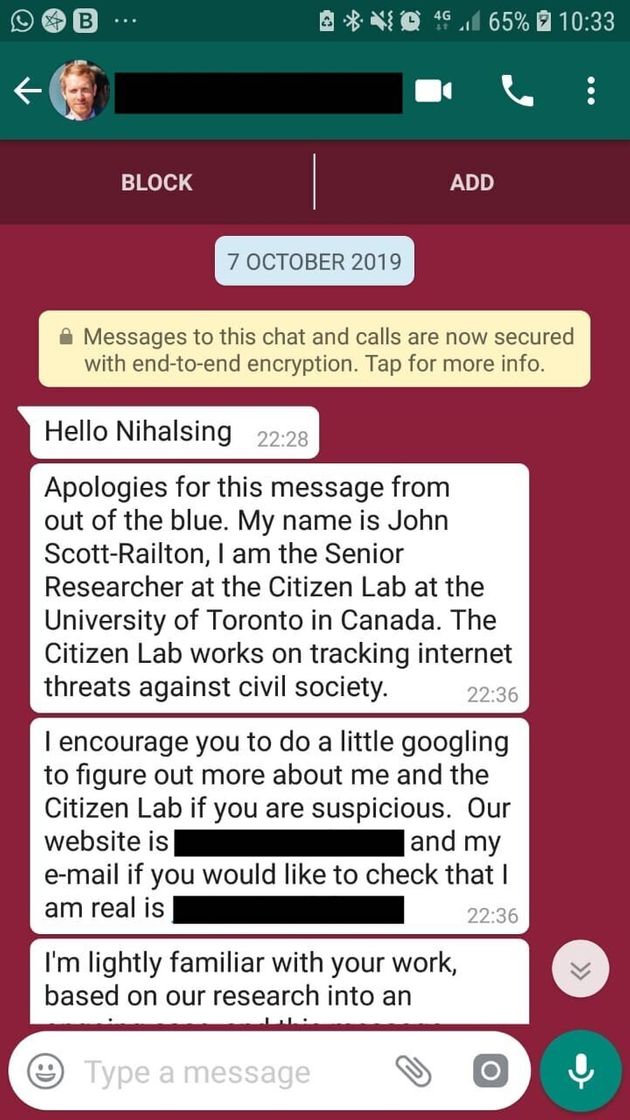Journalists, lawyers and other users suffer massive privacy breach

The Whatsapp Snoopgate issue that spread like wildfire, not only had the general public under its attack, but lawyers defending the human rights activists arrested under the controversial Bhima Koregaon case have also confirmed that their phones were being targeted by Pegasus, a the surveillance software developed by Israeli company NSO group that came to be in question, The Huffington Post report.
The surveillance revelations come after the messaging platform sued Israeli surveillance firm NSO Group on Tuesday, accusing it of helping government spies break into the phones of roughly 1,400 users across four continents including diplomats, political dissidents, journalists and government officials. NSO denied the allegations.
The malware attack, according to Whatsapp, exploited its video calling system to send malware to the mobile devices of a number of users. The malware would allow NSO’s clients – said to be governments and intelligence organisations – to secretly spy on a phone’s owner, opening their digital lives up to scrutiny, the Economic Times reported.
WhatsApp sued the NSO Group in a federal court in San Francisco on Tuesday, accusing it of using WhatsApp servers in the United States and elsewhere “to send malware to approximately 1,400 mobile phones and devices (‘Target Devices’)… for the purpose of conducting surveillance of specific WhatsApp users (‘Target Users’)”. It had later sent out a privacy alert message to people it detected to be targeted by Pegasus.
The NSO has said that it sells its software to governments around the world. However, the Ministry of Home Affairs’ Cyber and Information Security division in response to an RTI query said that there was no information on any order being given to purchase the Israeli spyware Pegasus.
Why the spying on Bhima-Koregaon lawyers is a significant revelation
The spyware attack that shocked users had high-profile targets. Right from Former Union Minister Praful Patel and former Lok Sabha MP Santosh Bharatiya, the spyware attacked the phones of lawyers, journalists and human rights activists.
Among those who may have been targeted are Chhattisgarh-based activist Shalini Gera, Nagpur-based lawyer Nihalsing Rathod, Adivasi rights activist Bela Bhatia, academic and writer on Dalit issues Anand Teltumbde, former BBC journalist Shubhranshu Choudhary, and Chandigarh-based lawyer, associated with the Bhima Koregaon case, Ankit Grewal.
India has been notorious for spying on citizens without warrants, but the use of Pegasus in the Bhima-Koregaon case is particularly alarming for it makes use of files illegally obtained from the computers and phones of the accused, who have been charged with waging war against the state.
In June 2018, the Pune police had launched a series of country-wide raids on activists and lawyers involved in fighting Dalit issues, Adivasi rights, and those accused of supporting the Communist Party of India (Maoist).
Civil liberty activists SudhaBharadwaj, Arun Ferreira, Vernon Gonsalves, Gautam Navlakha, Varavara Rao and Anand Teltumbde were arrested during the raids. Termed ‘Urban Naxals’ the Pune police produced ostensibly incriminating correspondence that they claimed was drawn from the computers of these activists. Now, lawyers representing the accused say the Pegasus hack proves that this correspondence was planted on their computers.
Nihalsingh Rathod, who is one of the lawyers in the team of Surendra Gadling, a popular Dailt rights lawyer, is now joining the dots saying he now knows how the so-called ‘letters’ that the police had obtained because they were planted on the hard-drives of activists.



Surendra Gadling was among those who had been arrested and booked under several activities of the Unlawful Activities (Prevention) Act and the Indian Penal Code.
He told Huff Post India, he learnt he was a target when he was contacted by a researcher from the University of Toronto’s Citizen Lab on October 7 2019.
On October 7, 2019 he was contacted by a senior researcher John Scot-Railton from the Toronto University’s ‘Citizen Lab’ informing him that he faced a “specific digital risk”.
“The researcher told me that he suspected that my phone had been targeted by malware and compromised,” Rathod told HuffPost India. “The researcher didn’t tell me that the malware was sold exclusively to national governments, and so I did not suspect that the Indian government was behind the attack.”
“Before his arrest, similar things happened to Surendra Gadling’s phone and computer. He asked me about it. I thought it was just spam.”
Rathod said he was now planning legal action against the Indian state.
“The senior researcher told me that his lab had followed my work and during their research had found out that my profile was under a surveillance attack. All those calls made to me for two years suddenly began to make sense,” Rathod told The Wire.
The Citizen Lab was one of the first research organizations to examine how Pegasus operated.
“We have always maintained that the letters police claim to have found on Gadling’s computer were planted,” Rathod said. “As defenders of human rights and the constitution, we feel helpless and hopeless.”
However, Rathod nor Gadling are the only ones to have received such messages and calls.
Two days ago, Rupali Jadhav, a 33-year-old cultural and anti-caste activist from Pune shared screenshots of messages she had received from WhatsApp and Citizen Lab.
The reason Jadhav said her profile was compromised because she had been associated with an anti-caste cultural group called the Kabir Kala Manch and has been handling social media movements in the state. She is the official administrator of the WhatsApp and Facebook pages of Kabir Kala Manch, Bhima Koregaon Shaurya Din Prerana Abhiyan, Elgaar Parishad, and the political party Vanchit Bahujan Aghadi, she told The Wire.
Degree Prasad Chouhan, a Dailt rights activist and lawyer too received a similar chain of messages as did Shalini Gera, Bela Bhatia, AnandTeltumbde and Saroj Giri.
Gera, who has been a part of the lawyers collective Jag Lag, has faced a severe backlash from several right-wing organisations and Chhattisgarh police for the work she and her colleagues had been doing in the state.
Bela Bhatia is a Bastar-based academic, researcher and human rights defender. She has participated in the preparation of many fact-finding reports and served on a Planning Commission-appointed panel to examine challenges to governance in areas of the Maoist rebellion.
Saroj Giriis a lecturer in Political Science, University of Delhi, Delhi. He writes on contemporary social and political issues and is an activist.
Anand Teltumbde is an Indian professor, scholar, writer, and civil rights activist. He has written extensively about the caste system in India and advocated for the rights of Dalits.
Speaking about the calls and messages from Citizen Lab and WhatsApp Anand Teltumbde said, “[The researcher] explained to me what the spyware is all about. He sent me a text message first. Then I enquired about Citizen Lab’s credibility and spoke to its representative. The NSO group has said that it has given Pegasus licenses only to governments across the world. So, it is clear that the India’s government used the spyware against us, citizens.”
The espionage attempt has not spared research scholars too. Ajmal Khan, a 29-year-old Delhi based research scholar was approached by Citizen Lab too. He is well-known among students’ group in Mumbai and apart from being part of several anti-caste movements and civil rights movements, he has been active in students’ struggles including the agitation following Ph.D. scholar Rohith Vemula’s death in 2016.
It is clear that even after the denial of the Ministry of Home Affairs, the spyware attacks on the phones of these activists were not random, but were part of a carefully orchestrated plan to silence dissent and rebellion.
Condemning the development that has come to light, Amnesty International has cited this attack on activists to be a grave violation of their right to privacy and has pledged its legal support to get the Israeli ministry to stop the manufacturing of NSO’s products.
Sources – The Wire, Huffington Post.
Related:
The UK government spied on human rights groups – now they’re taking it to court
HC directs police to file report on SambhajiBhide’s role in violence: Bhima-Koregaon Case
BhimaKoregaon case: Bail Applications of three social activists rejected by Bombay High Court
Bhima-Koregaon Case: HC Refuses to Quash Case AgainstGautamNavlakha
Years of hard work taken away: DU Professor on Pune police raids without search warrant